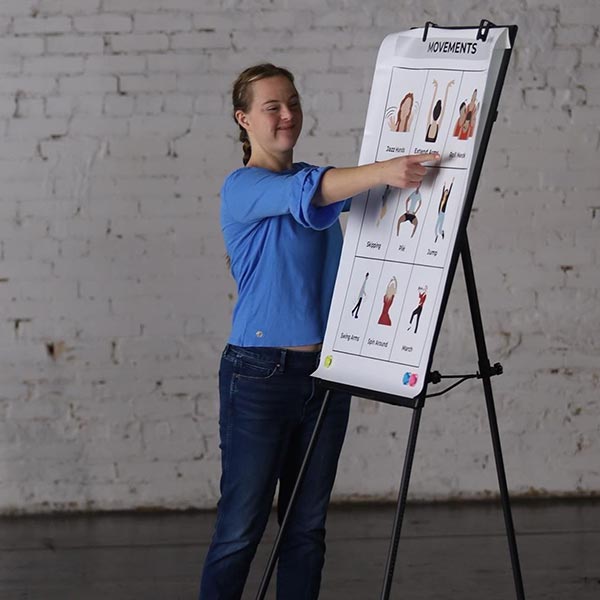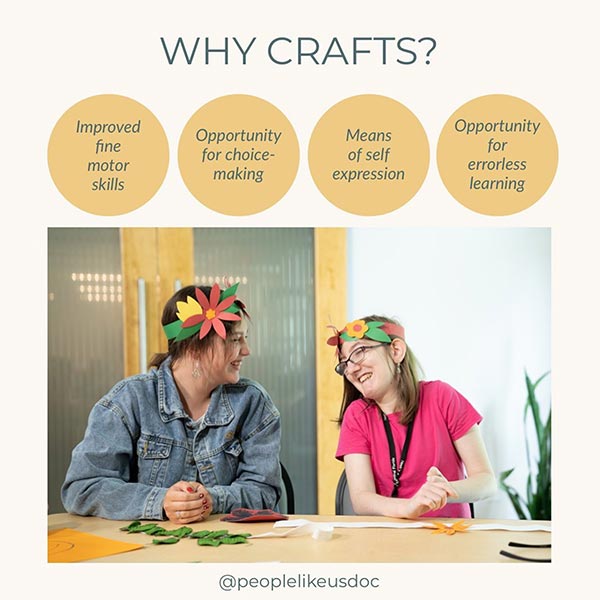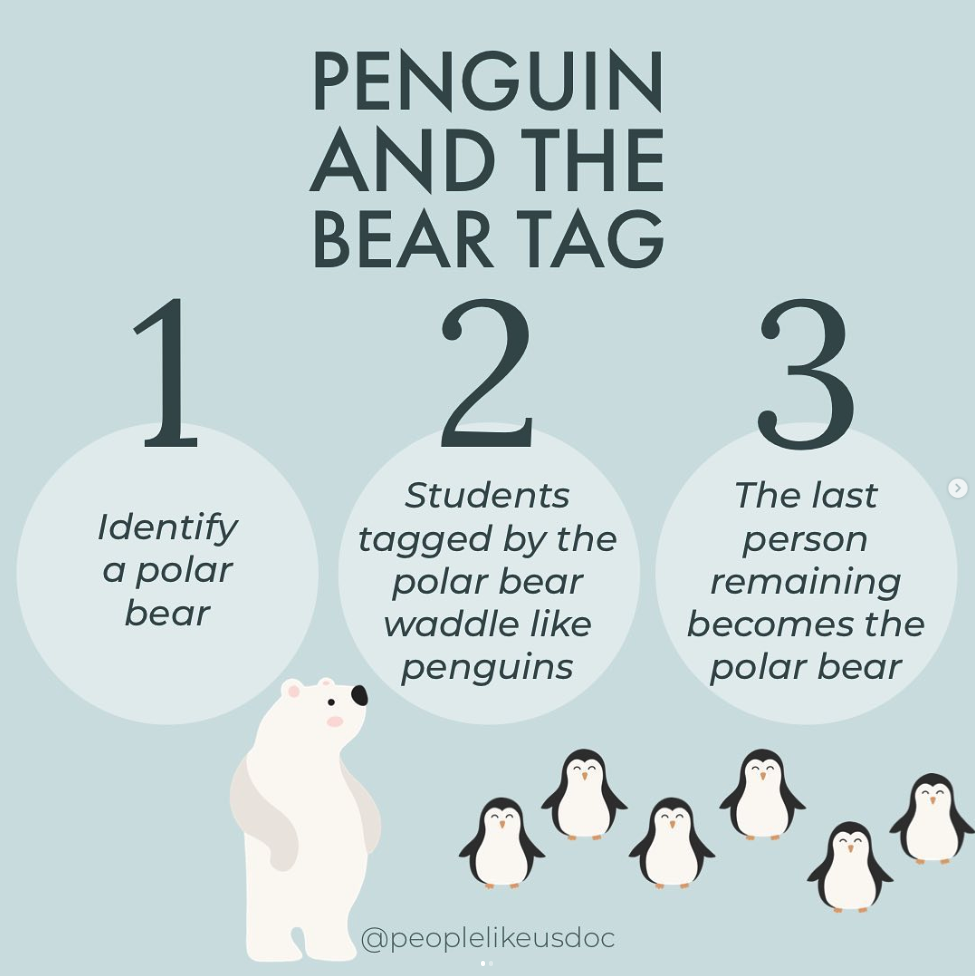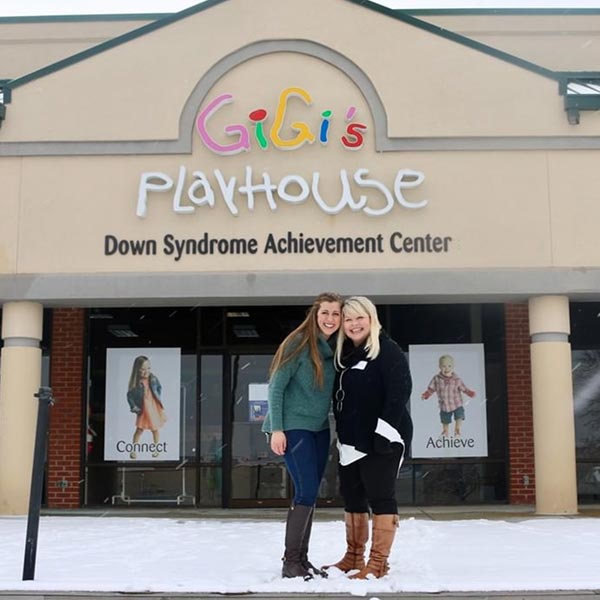Free Resources
$89 Yours for free!
Putting on a Production:
Red Riding Hood
Teach communication, social-emotional learning, and more by involving your entire classroom in a performance of this classic fairy tale.
Comprehensive curriculum (65 pages)
Video-based instruction (15 modules)
Original score, choreography videos, and costume designs
Customizable posters and playbills
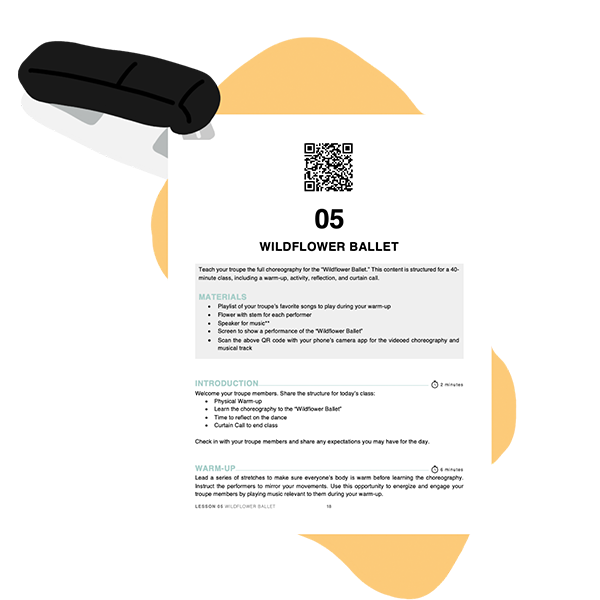
65-Page Workbook
Want to teach the curriculum yourself? Each episode is accompanied by a detailed lesson plan, complete with research-based activities and instructor tips. Educators, parents, and volunteers can easily use this curriculum to teach performers of varied abilities.
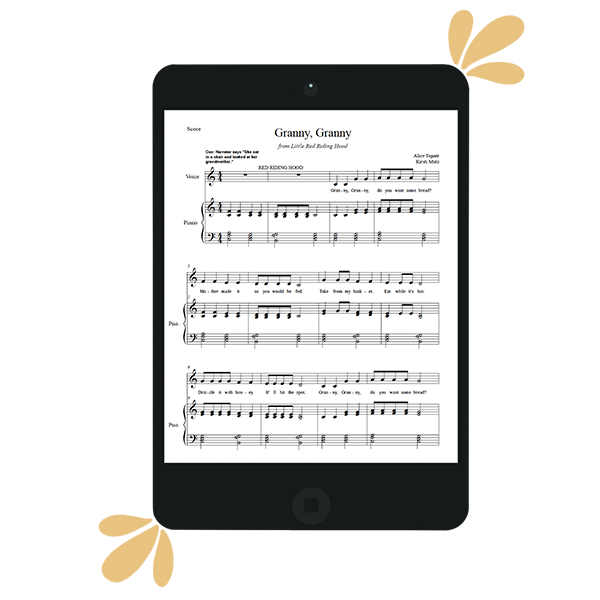
Original Score
Perform with our pre-recorded tracks or the print the sheet music for your accompanist. From costume design to step-by-step choreography videos, you’ll have all the support you need to produce an original, musical rendition of this classic tale.
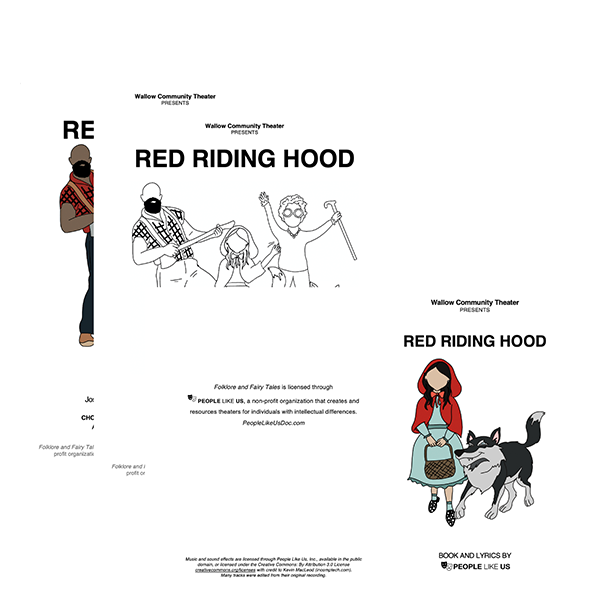
Posters & Playbills
Your performance deserves great marketing! Download and customize the poster and playbill designs to share about your show. Print and hang your posters throughout your community, share on social media, or pass them out to family and friends.
More Activities and Resources
People Like Us Blog
Looking for more classroom activities, lesson plans, warm-ups, and downloadable resources?
Head over to the PEOPLE LIKE US blog!
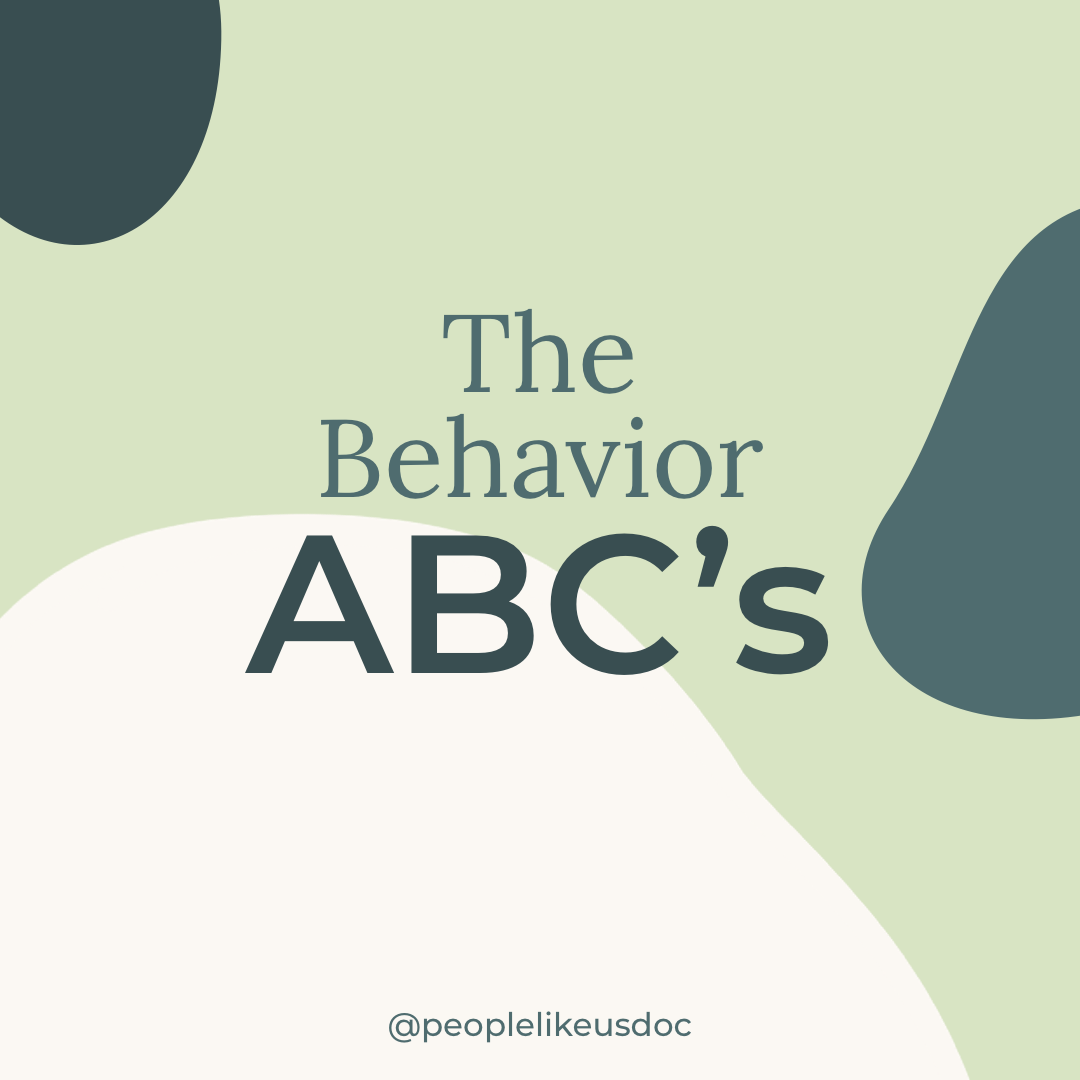
Yours for free!
The Behavior ABC’s
When students are having a tough time—or if they’re having trouble verbalizing their needs—they often express themselves through silly, disruptive, or otherwise problematic behaviors. By understanding the why behind what’s happening, we can respond in ways that defuse the situation, rather than amplify it. The Behavior ABCs will help you do just that!
Download Ten Activities
Adaptive Musical Theater Games
Everyone deserves access to quality education. But if you’re like most educators, you may feel ill-equipped to offer meaningful instruction to your students with developmental disabilities. Learn ten games you can use to teach your students with (and without!) developmental disabilities. This handout offers step-by-step guidance and practical resources so you can leverage the power of the performing arts for every students in your classroom.
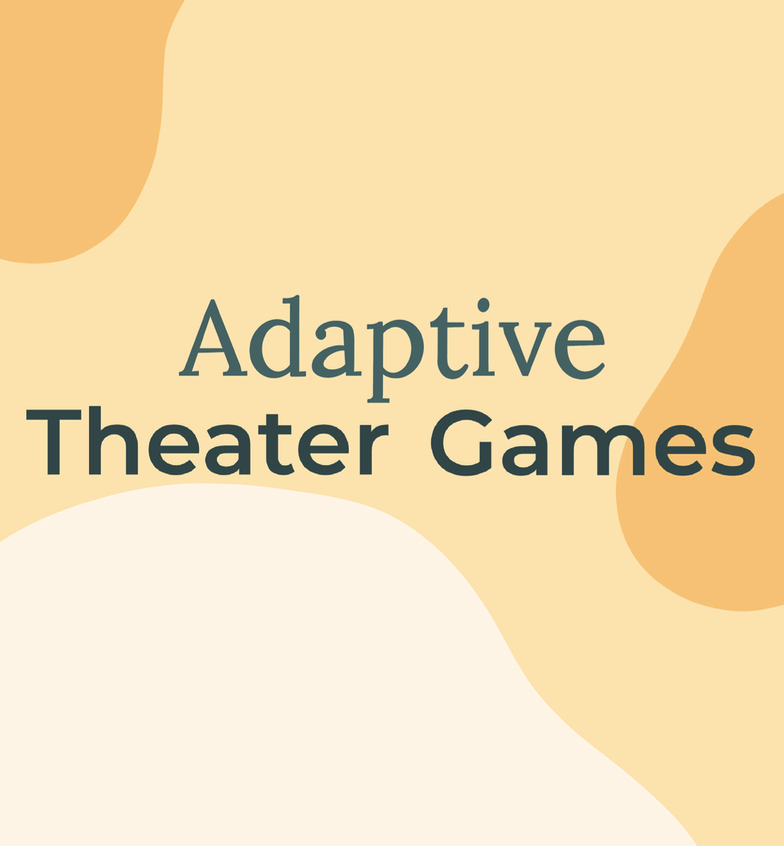

Download Now
Justification Letter
Many educators want to know if People Like Us is a “licensed continuing education provider.” Honestly, it depends. Continuing education licensure and approval is a district-by-district decision, so you’ll want to get approval from your administrators before you start your course. Download our justification letter to help you make the ask!
But even if your district is fussy about CEUs/CPEs/PDHs, our courses are still 1000000% worth it.
- With our evidence-based tips and tools, you’ll grow your confidence working with students with disabilities.
- Our easy-to-use lesson plans will save you time and help keep your students engaged and on track.
- You’ll feel less frustrated, less discouraged, and more energized. And your whole classroom will feel more joyful!
These are truly professional development hours you’ll use. Whether or not they “count” for your district requirements, they’ll count for your students.
Scripts, Score, & Resources for $159
Adaptive Productions
Folklore & Fairy Tales
Use these 12 modifiable scripts to teach foundational performance skills. This collection includes both plays and musicals, along with roles that cater to both new and seasoned performers.
Twelve Scripts (5 to 15 minutes each)
License to Modify and Adapt
Casting Guides
Rehearsal & Accompaniment Tracks
Crafts for Costume Designs
Customizable Posters & Playbills
SEL Discussion Guides
Choreography Videos

Download the Inventory
Equity Inventory
When learning something new, it’s hard to feel left behind and expected to “figure it out yourself.” I’m sure you can resonate with the frustration of someone failing to slow down enough to explain things in a way that makes sense to you. That’s why experts have worked so hard to define the difference between equality and equity. Answer the questions in this inventory to determine whether you’re creating an equitable environment for your students.

